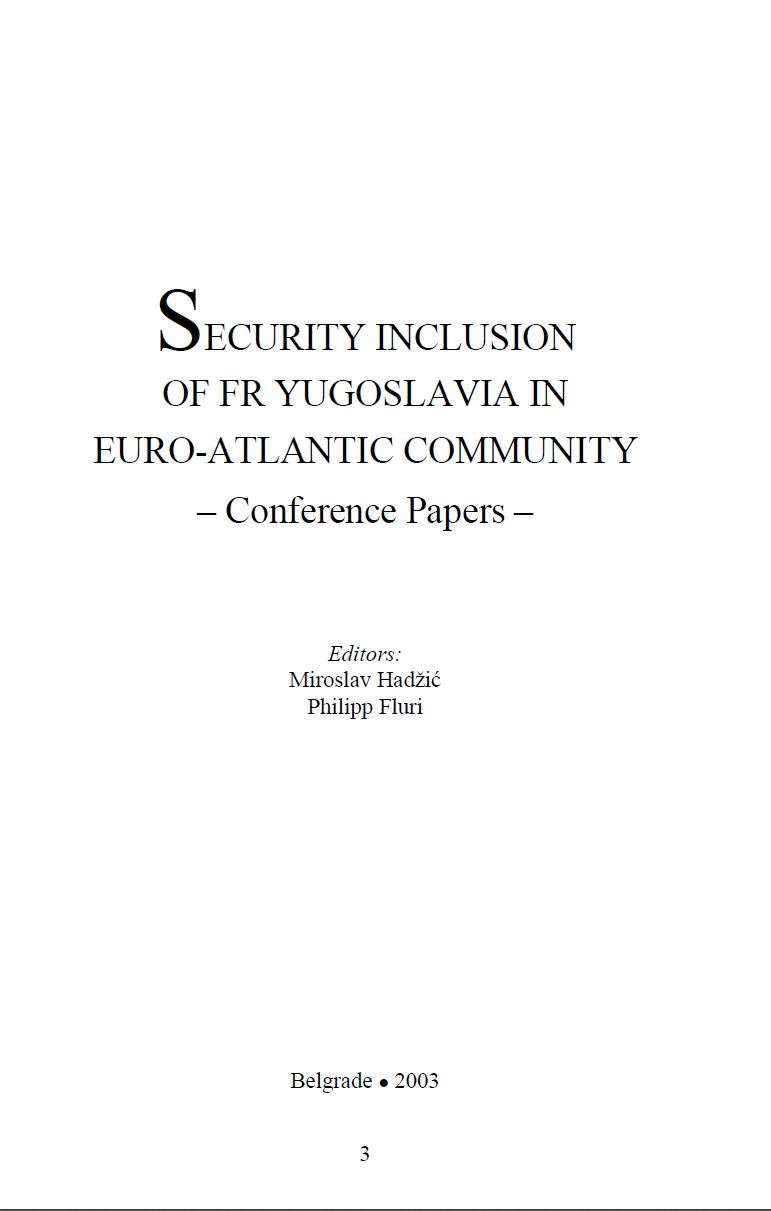Part Two
Part Two
Author(s): Michael Pugh, Marc Houben, Vojin Dimitrijević, Radoslav Stojanović
Subject(s): Politics / Political Sciences, Politics, Security and defense, Military policy, EU-Approach / EU-Accession / EU-Development, Geopolitics
Published by: BCBP Beogradski centar za bezbednosnu politiku
Keywords: FR Yugoslavia (FRY); Democratic transition; NATO ; European Union (EU); Slobodan Milošević ; Democratic standards; Southeastern Europe ; Balkan security ; Cold War ; Kosovo crisis ; UN Resolution 1244
Summary/Abstract: Democratic associations of civil society can play a transformative role in changing existing mentalities. This need not be limited to budgetary and performance oversight, but could include development of structures and regulations. The role of civil society groups would also be to mediate and translate security issues between the wider society and the defence establishment. They can make military questions meaningful to society and echo social concerns to the defence establishment. Such a transfer of knowledge can also occur by other means: official statements, military press briefings, and the election of parliamentarians with an interest in security matters. But official statements are only the beginning of dialogue, press briefings can be easily manipulated and parliamentarians are elected only every few years and do not usually devote much time to defence issues (except, importantly, through standing committees).
Book: Security Inclusion of FR Yugoslavia in Euro-Atlantic Community
- Page Range: 55-100
- Page Count: 46
- Publication Year: 2003
- Language: English
- Content File-PDF

